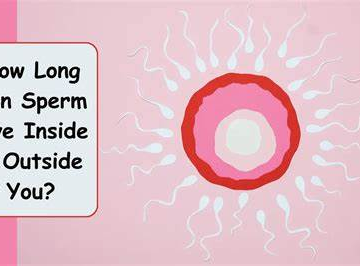
Testing your sperm count may feel like a mysterious or awkward process—but it doesn’t have to be. Understanding how to test sperm count, what the results mean, and how to improve your chances of fathering a child is essential for any man concerned about fertility. In this comprehensive guide, we’ll walk you step-by-step through everything you need to know about semen analysis, from why it’s important, to how it’s done, to the lifestyle changes that can make a real difference in your sperm health. If you’re ready to take control of your fertility journey, read on.
1. Understanding Sperm Count and Male Fertility
Testing sperm count is a key step in understanding male fertility. Many couples facing difficulties conceiving learn that male factors can be just as crucial as female factors. In fact, experts estimate that male infertility is responsible for about 40% to 50% of all infertility cases.
1.1 What Is Sperm Count?
“Sperm count” typically refers to how many sperm cells are present in one milliliter (mL) of semen. It’s a snapshot of your sperm health and one of the first numbers doctors look at when evaluating male fertility.
- High sperm count generally means there are more sperm available to reach and fertilize an egg.
- Low sperm count can lower the odds of conception and may signal deeper health issues.
But sperm count is not the only measurement that matters: sperm motility (how well the sperm move), morphology (their shape), and seminal volume (the amount of fluid) also play important roles.
1.2 Why Sperm Count Matters
A healthy sperm count is critical for natural conception. Even though it only takes one sperm to fertilize an egg, having a higher count improves your chances. When sperm counts are too low—known medically as oligospermia—or if there are zero sperm present in the ejaculate (azoospermia), couples may face serious challenges getting pregnant.
In addition to fertility, sperm health can also hint at overall well-being. For example, lifestyle habits or medical issues that affect the body (like hormonal imbalances, infections, or genetic conditions) might show up first through changes in sperm production.
2. Common Reasons to Test Sperm Count
2.1 Infertility Concerns
One of the biggest reasons men get their sperm tested is when they and their partner have trouble conceiving. Doctors often recommend a semen analysis early in the evaluation process. The sooner you understand your sperm health, the faster you and your doctor can create a plan—possibly involving specialized fertility treatments like IVF (In Vitro Fertilization) or ICSI (Intracytoplasmic Sperm Injection).
2.2 Health Check
Sometimes, a sperm count test is done as part of a general health check-up or to see if certain health conditions—like hormonal imbalances, infections, or varicoceles (enlarged veins in the scrotum)—are affecting fertility.
2.3 Monitoring Progress
Men who have already been diagnosed with a low sperm count may need to track improvements. For example, if you’ve changed your diet, started exercising more, or begun taking supplements to boost fertility, you might re-test your sperm count after a few months to see if those changes are having an effect.
3. Different Methods for Testing Sperm Count
3.1 Clinical Semen Analysis
The gold standard for testing sperm count is a clinical semen analysis, performed in a medical lab or fertility clinic. This analysis measures:
- Concentration (count): The number of sperm per milliliter of semen.
- Motility: The percentage of sperm that move, and how well they move.
- Morphology: The shape of the sperm (head, midpiece, tail).
- Volume: The total amount of fluid produced.
- pH, fructose levels, and other health indicators in the semen.
A clinical test is highly accurate and also provides detailed information about your overall reproductive health.
3.2 Home Sperm Test Kits
Home sperm test kits are becoming increasingly popular for men seeking a quick, private way to measure their sperm count. While they can offer a convenient first look, it’s important to note:
- Pros: Discreet, convenient, relatively fast results.
- Cons: Often measure only sperm concentration, not motility or morphology. May be less precise than laboratory tests.
If you get low or concerning results from a home kit, following up with a clinical semen analysis is crucial to confirm your sperm parameters.
3.3 Additional Male Fertility Tests
If initial tests show abnormal results, doctors might suggest additional checks, such as:
- Hormone testing (checking testosterone, FSH, LH, etc.).
- Genetic testing (screening for chromosomal abnormalities).
- Testicular ultrasound (looking for varicoceles or structural issues).
- Post-ejaculate urinalysis (checking for retrograde ejaculation).
These deeper evaluations can pinpoint underlying issues that may be harming sperm production or quality.
4. How to Prepare for a Sperm Test
4.1 Abstinence Period
Experts usually recommend 2–5 days of sexual abstinence before collecting a semen sample. This period helps ensure that your sperm count is at a stable level. Longer than 5 days, however, can reduce sperm quality because older sperm may start to degrade.
✔️ Aim for a balanced time frame—not too short, not too long.
❌ Avoid frequent ejaculations right before the test, as it may lower your count.
4.2 Lifestyle Factors
Your daily habits can significantly affect your sperm health. In the days or weeks leading up to the test:
- Limit Alcohol and Caffeine: A moderate amount is fine, but heavy use can negatively affect sperm.
- Stop Smoking: Tobacco can lower sperm count and cause other fertility issues.
- Manage Stress: High stress levels release hormones that can reduce testosterone and impair sperm production.
- Avoid Excess Heat: Hot tubs, saunas, or even tight clothing can raise scrotal temperature and harm sperm.
4.3 Medications and Supplements
If you’re taking prescription medications, talk to your doctor. Certain drugs—like some steroids, chemotherapy agents, or hormonal treatments—may impact sperm production. Also, let the healthcare provider know if you’re on supplements (like zinc or vitamin D), as these can sometimes skew results.
5. Step-by-Step Guide to a Standard Semen Analysis
5.1 Collection Process
- Preparation: Make sure you’ve followed your clinic’s guidelines on abstinence and you understand how to properly collect the sample.
- Clean Hands and Penis: This helps avoid contamination that might affect the analysis.
- Masturbation: The most common method of collection is through masturbation, typically in a private room at the clinic. Some clinics also allow home collection, but be sure to deliver the sample quickly if you do it at home (usually within 30–60 minutes).
- Special Condoms: If you prefer to collect via intercourse, the clinic can provide special non-toxic condoms that won’t harm the sperm. Ordinary condoms are coated with chemicals that can kill or damage sperm.
5.2 Laboratory Procedures
Once the lab receives your sample, the technicians will:
- Liquefaction: Semen typically thickens after ejaculation, then liquefies within 20–30 minutes.
- Examination: Lab staff will measure the total volume, pH, and appearance of the sample.
- Microscopic Analysis: They’ll count how many sperm are in each milliliter, check their movement, and evaluate the shape and structure of the cells.
5.3 Reading the Results
The lab will compile a report with details about sperm count, motility, morphology, and other key parameters. You’ll usually receive these results within a few days. Some labs can provide results faster, depending on your clinic’s policies.
6. Interpreting Semen Analysis Results
6.1 Normal Ranges
The World Health Organization (WHO) provides reference ranges for semen analysis. Although these ranges are guidelines rather than absolute lines in the sand, they give a useful starting point:
| Parameter | WHO Reference Range |
|---|---|
| Volume | ≥1.5\geq 1.5 mL |
| Concentration (Count) | ≥15\geq 15 million sperm per mL |
| Total Sperm Number | ≥39\geq 39 million per ejaculate |
| Motility | ≥40%\geq 40\% motile sperm |
| Morphology | ≥4%\geq 4\% with normal forms (strict criteria) |
| pH | 7.2–7.8 |
If your results are slightly below these values, don’t panic. Many men with borderline results still father children naturally. However, if your numbers are significantly lower, or if there are other issues (like no sperm at all), it’s wise to talk to a fertility specialist.
6.2 Causes of Low Sperm Count
A low sperm count—known medically as oligospermia—can happen for many reasons:
- Hormonal Imbalances: Low testosterone or high estrogen can reduce sperm production.
- Infections: Certain STIs or urinary tract infections can hinder sperm health.
- Varicocele: Enlarged veins in the scrotum can raise temperature and reduce sperm production.
- Genetic Factors: Some men carry genetic changes that affect sperm production or quality.
- Lifestyle Choices: Smoking, heavy drinking, and drug use are common culprits.
- Obesity: Excess body fat can throw hormones off balance.
6.3 Other Factors: Motility, Morphology, Volume
Besides count, labs also measure these sperm health indicators:
- Motility: Sperm need to swim effectively to reach the egg. If motility is low, fertilization chances drop.
- Morphology: Healthy sperm usually have an oval head, a short midsection, and a long tail. Abnormal shapes may struggle to fertilize the egg.
- Volume: A low semen volume might mean that some glands (like the prostate or seminal vesicles) aren’t producing enough fluid.
7. Common Challenges and Mistakes
7.1 Not Following Abstinence Guidelines
Testing too soon after your last ejaculation can lead to a falsely low count, while waiting too long might reduce sperm quality. Sticking to the clinic’s recommended abstinence window (often 2–5 days) ensures the most accurate results.
7.2 Inaccurate Collection
Sometimes, a sample is incomplete—for example, if part of the ejaculate misses the container or if a standard condom is used. Even missing a small portion of the initial flow can affect the overall count and volume. Make sure you follow the instructions carefully.
7.3 Stress and Anxiety
Performance anxiety is common, especially when collecting a sample in a clinic setting. Stress itself can also lower sperm production. If you’re worried, talk to your healthcare provider about collection methods or relaxation techniques.
8. Improving Sperm Count and Quality
8.1 Diet and Nutrition
Diet changes can have a real impact on sperm quality. Consider these steps:
✔️ Focus on whole foods: Lean proteins, whole grains, fruits, and vegetables offer essential vitamins and minerals.
✔️ Include antioxidants: Foods like berries, nuts, and leafy greens are high in vitamins C, E, and other antioxidants that protect sperm from damage.
✔️ Healthy fats: Omega-3 fatty acids (found in fish like salmon or in flaxseeds) are linked to better sperm quality.
❌ Avoid processed and sugary foods: These can increase inflammation and may lower sperm quality over time.
❌ Excessive red meat and trans fats: Some studies suggest these could hurt sperm health when consumed in large amounts.
8.2 Healthy Lifestyle Habits
- Exercise Regularly: Moderate exercise can help maintain healthy testosterone levels, reduce stress, and support overall well-being.
- Maintain a Healthy Weight: Being overweight or underweight can disrupt hormone levels, including testosterone.
- Stay Hydrated: Proper hydration supports overall bodily functions, including semen production.
- Sleep Enough: Aim for 7–9 hours a night. Consistent, restful sleep helps balance hormones and encourage sperm production.
8.3 Supplements and Vitamins
Several supplements are often recommended to boost sperm count and quality:
- Zinc: Supports healthy testosterone levels and sperm development.
- Folate (Vitamin B9): May reduce abnormal sperm.
- Coenzyme Q10 (CoQ10): Works as a strong antioxidant and might improve motility.
- Vitamin D: Linked to improved hormone function and sperm quality.
- L-Carnitine: Some studies show it can support sperm motility.
Before starting any supplement, check with a healthcare provider, as doses and interactions can vary.
8.4 Medical Treatments
In some cases, lifestyle changes and supplements may not be enough. Medical interventions might include:
- Hormone Therapy: If you have low testosterone or abnormal hormone levels, hormone treatments may help.
- Surgery for Varicocele: Correcting enlarged veins in the scrotum can sometimes boost sperm count.
- Antibiotics: If an infection is present, treatment can improve sperm parameters.
- Assisted Reproductive Techniques: If sperm count remains low, fertility specialists may recommend IVF, ICSI, or other approaches.
9. Advanced Fertility Treatments
9.1 IVF (In Vitro Fertilization)
IVF is a common assisted reproductive technology in which eggs and sperm are combined in a lab to create embryos, which are then transferred to the uterus. IVF can help overcome many issues, including low sperm count, but often requires multiple steps:
- Ovarian Stimulation: The female partner takes medication to produce multiple eggs.
- Egg Retrieval: Doctors collect the eggs from the ovaries.
- Fertilization in the Lab: Sperm is placed with the eggs in a controlled environment.
- Embryo Transfer: One or more healthy embryos are transferred into the uterus.
9.2 ICSI (Intracytoplasmic Sperm Injection)
ICSI is a specialized form of IVF. Rather than placing sperm around the egg and hoping one fertilizes it, a single sperm is injected directly into the egg. This technique is especially useful for very low sperm counts or sperm with poor motility. Even if only a few healthy sperm are available, ICSI can make fertilization possible.
9.3 Other Assisted Reproductive Technologies
- IUI (Intrauterine Insemination): The sperm is washed and placed directly into the uterus, bypassing the cervix, giving sperm a shorter path to the egg.
- TESE or PESA: Surgical sperm retrieval methods (like Testicular Sperm Extraction) if sperm are not present in the ejaculate.
- Donor Sperm: If sperm count or quality is too low for fertilization, some couples may consider a donor.
10. Latest Research and Future Trends
The field of male fertility testing is constantly evolving. Scientists are exploring new home testing technologies that go beyond a simple sperm count. There are smartphone-based devices that measure motility or morphology, and advanced lab tests that look at DNA fragmentation in sperm cells to predict embryo development.
Research also continues into gene editing, regenerative medicine, and specialized nutritional therapies that might one day dramatically change how we treat male infertility. While these options aren’t widely available yet, they show promise for the future of male fertility care.
11. Frequently Asked Questions
11.1 How often should I test my sperm count?
If you’re actively trying to conceive or making lifestyle changes to boost fertility, doctors may suggest re-testing every 3 to 6 months. Sperm production cycles last about 74 days, and it often takes another few weeks to see noticeable changes in count or quality.
11.2 Can stress really affect sperm count?
Yes, it can. High levels of cortisol (the stress hormone) can interfere with testosterone production. Stress also disrupts sleep and promotes unhealthy habits (like smoking or overeating) that hurt fertility. If you feel anxious or under pressure, practicing relaxation techniques (meditation, breathing exercises, or mild physical activity like yoga) can help.
11.3 Are home sperm kits reliable?
Home sperm test kits can give you a rough estimate of your sperm concentration. However, they typically don’t evaluate motility or morphology. For a full picture of your sperm health, a clinical semen analysis is still the gold standard.
11.4 Can diet alone fix a low sperm count?
Diet is a major piece of the puzzle, but it’s rarely the only solution. While a balanced, nutrient-rich diet can improve sperm quality and count, other factors like exercise, sleep, and avoiding harmful habits are also critical. If you suspect deeper medical issues (e.g., hormonal imbalances, infections), consult a fertility specialist for targeted treatments.
12. Conclusion and Interactive Section
Testing your sperm count is a practical step if you’re concerned about fertility or simply want to keep tabs on your reproductive health. By understanding how to prepare for the test, what the results mean, and how to improve any problem areas, you can make informed decisions about your next steps—whether that’s trying naturally, making lifestyle changes, or pursuing advanced fertility treatments like IVF or ICSI.
Remember, sperm health is closely tied to overall health. Small changes—like eating better, exercising, and managing stress—can have a ripple effect on your well-being and fertility. If you or your partner suspect an issue, don’t be afraid to speak with a doctor or fertility specialist. Early testing and informed guidance can make a world of difference.
- Have you tried a home sperm test kit? Share what you liked or didn’t like about it.
- Struggling with stress or lifestyle changes? Let us know your tips for managing daily pressures while trying to improve fertility.
- Still have questions about how to test sperm count? Post your queries in the comments, and we’ll do our best to help or clarify.
Your input helps others in the same boat. Join the conversation, and let’s support each other on the path to better fertility health.



